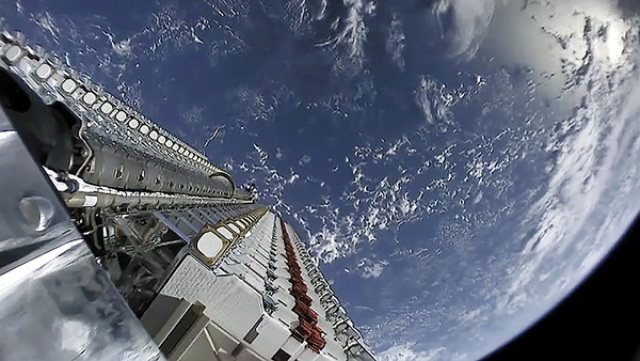In the Chinese peer-reviewed scientific journal Modern Defense Technology, researcher Ren Yuanzhen from the Beijing Institute of Tracking and Telecommunications published an article on the "Starlink problem".
According to the scientist, the Chinese military needs to work out ways to counter any threat emanating from Elon Musk's network.
At the moment, the original material has been withdrawn from public access for unknown reasons, but its translation is available on a third-party resource in English, in addition, wrote about this article Now part of Alibaba Group, the South China Morning Post. The scientist says that Starlink poses "hidden dangers and challenges" for China, in connection with which it is proposed to develop a "combination of soft and hard methods of destruction" to disable some satellites and the grouping as a whole. The author also expresses concern that the project vehicles may go on the "offensive" and start knocking out Chinese satellites and spaceships from orbits.
Elon Musk's SpaceX company is building a constellation of Starlink satellites in low Earth orbit (from 328 to 614 km), designed to provide high-speed Internet to subscribers located almost anywhere in the world. To date, about 2,400 vehicles have been put into orbit, but eventually it is planned to increase their number to 42,000.
The validity of the fears of the Chinese specialist was also recognized by the American scientist Jonathan McDowell from the Harvard-Smithsonian Center for Astrophysics, to whom the journalists of the Gizmodo resource turned for comments: "If you serve in the armed forces of a country whose job it is to think about the war in space, then you see Starlink as a different kind of problem."
The main problem is that there are too many satellites, and in order to eliminate the entire grouping, a huge number of anti—satellite missiles will have to be sent into orbit - the destruction of one, two or even several dozen will not disable the entire system. In addition, SpaceX will replace several downed units without any complications. "It is cheaper to replace the Starlink satellite than to launch an anti—satellite rocket," Mr. McDowell summed up.
Mr. Musk's project seriously alarmed Beijing after its vehicles almost crashed into the Chinese Tiangong station twice last year with Taikonauts on board — in both cases, it was the station that had to perform evasive maneuvers. The authors of the article are concerned that Starlink may soon fill the entire low-Earth orbit altogether, and the private company managing the project, SpaceX, in fact, can help the Pentagon to dominate this valuable area of space. In early May, the China Military edition of the Central Military Council of the People's Republic of China published material, the authors of which recalled that Starlink can not only provide communication to ground subscribers, but also interact with drones.
Elon Musk, who agreed to place Starlink terminals in Ukraine, himself admitted in a March interview with Business Insider that his spacecraft could become a target: "If you try to disable Starlink, it won't be easy, because we have 2,000 satellites. This means [that] many anti-satellite missiles will be required. I hope that we won't have to check it, but I think we will be able to launch satellites faster than they will send anti-satellite missiles."



